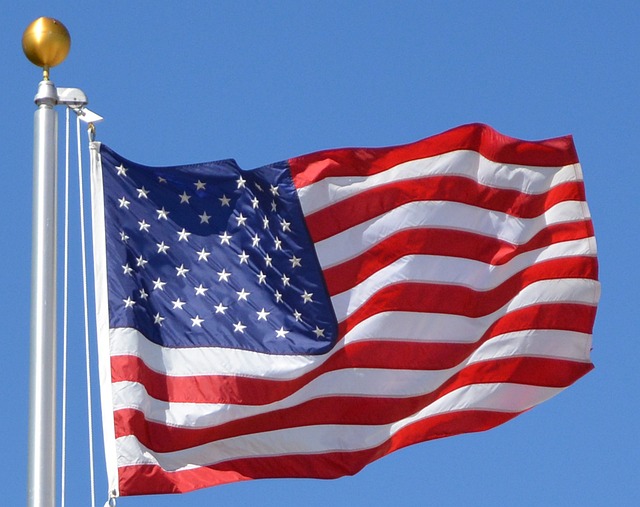
AP U.S. History

AP United States History focuses on developing students’ abilities to think conceptually about U.S. history from approximately 1491 to the present and apply historical thinking skills as they learn about the past. There are seven themes of equal importance built into this course: identity; peopling; politics and power; work, exchange, and technology; America in the world; environment and geography; and ideas, beliefs, and culture that provide areas of historical inquiry for investigation. These require students to reason historically about continuity and change over time and make comparisons among various historical developments in different times and places.
Major Topics and Concepts
Module One: Quest for the Americas
1941-1607
- North, Central, South American native tribes (corn and government structure)
- Columbus then Spanish and Portuguese colonization (Columbian exchange, encomienda, Christianity)
- New cultures of Central America and Caribbean
- Influx of African slavery
1607-1754
- Map of Spanish, Dutch, French, and British colonization in N. America
- British slave system and indentured servants
- Compare and contrast of British colonies—NE, Middle, Chesapeake and NC, and Southern Atlantic including British Isles and West Indies
- Growing conflict between settlers and native populations
- “Atlantic World”—mercantilism, Anglicization, early Enlightenment spread
Module Two: Colonies at War
1754-1800
- Native American conflicts with colonies
- Seven Years’ War
- Revolution
- Articles of Confederation
- Constitution
- Washington’s Presidency
Module Three: A New Republic
1800-1848
- Domestic policy and trade
- International policy and trade (1812)
- Migration to US as well as within
- Manifest Destiny
- Nullification and political issues, sectionalism
- Market Revolution
Module Four: American Civil War
1844-1877
- Effects of Manifest Destiny
- Abolition—women, social
- Compromises—1850, Kansas-Nebraska, Dred Scott
- Election of 1860—sectionalism, secession
- Civil War
- Reconstruction—political
- Reconstruction—social
Module 5: A Growing Nation
1865-1898
- Industrialization and big business—2nd Industrial Revolution
- Urbanization—early reform, political machine
- Western migration
- Native Americans
- Gilded Age—social
- Gilded Age—political
Module 6: Imperialism & Progressivism
1890-1932
- Effects of industrialization—progressives
- Imperialism
- World War I
- Post-war 1920s
Module 7: The World at War
1932-1945
- End of the boom and depression
- FDR and New Deal
- End of neutrality
- World War II—domestic and foreign
- Effects of World War II
Module 8: Cold War
1945-1980
- Cold War origins
- Political and military involvement—Korea, Vietnam, Middle East, Latin America
- Great Society
- Civil Rights Movements
- Changing migration—Immigration Act of 1965
- Liberal and Conservative society and their effects on politics
Module 9: A Brave New World
1980-Present
- Failures of the 1970s led to change in 1980s—political, social, economic
- Reagan’s Presidency and the fall of Communism
- Global marketplace
- War on Terror
- Social changes—internet, demographics
Testing lesson—practice exam
Course Materials
AP Course & Exam Registration Requirements
College Board requires students to register for AP exams no later than November 13th (individual schools may set earlier deadlines).
All VLACS AP students are required to enroll in the “course only” section in My AP. Instructions for joining My AP will be posted on each VLACS course page and instructors are available to help with this process.
Students who plan to take the corresponding AP exam must arrange to take the exam at a local school that administers it. To register for an AP Exam, the local school will enroll the student in an “exam only” section in My AP. Students should follow these steps:
- Search for a local test site through this resource of contact AP Services for Students at 888-225-5427 [email protected]. That office can give you contact information for local AP coordinators who may be willing to test outside students. Students are then responsible for contacting coordinators on that list to see if one can arrange to test for you. You should do this no later than October 2nd. Note that schools may have their own local deadlines for receiving requests from outside students to test at their school so we recommend doing this as soon as possible
- The AP coordinator who agrees to assist you must provide a join code for an “exam only” section in My AP. You’ll use the join code to join the section so that the AP coordinator can order your exam.
Please note that, if a school allows a student to register after the 11/13 deadline, there will be a $40 late exam fee. There will also be a $40 canceled/unused exam fee if a student registers and then cancels his/her exam or if the student does not show up on test day.
More information is available on the College Board’s website: https://apstudents.collegeboard.org/
Competencies
Early Americans
Students will demonstrate an understanding of early Americans by describing the interactions of civilizations from both sides of the Atlantic, analyzing the impact of early interaction on cultural and social development, and analyzing political rivalries impacting political development.
Movement to Colonial Independence
Students will demonstrate an understanding of the movement to Colonial Independence by analyzing the influences on colonial thought related to government and personal liberty, describing events leading to the colonial independence movement, and explaining political developments resulting from the creation of the United States Constitution.
Shaping the New Republic
Students will demonstrate an understanding of shaping the new republic by analyzing the influences shaping American culture, analyzing the influences shaping American democracy, and summarizing the relationship between the market revolution and regional and federal power.
American Expansion and Reconstruction
Students will demonstrate an understanding of the American Expansion and Reconstruction by explaining the westward expansion, explaining the sectional conflict of states’ rights, and explaining the results of the American Civil War and Reconstruction.
Impact of Industrialization and Immigration
Students will demonstrate understanding of the impact of industrialization and immigration by explaining the factors facilitating the transformation of the U.S. economy, explaining the impact of the expansion of industrialization, and the impact of increased immigration and migration.
Influences on Maerican Culkture and Foreign Policy
Students will demonstrate an understanding of the influences on American culture and foreign policy by explaining the influence of progressive reformers on American culture, describing the impact of World War I on foreign policy and analyzing the impact of imperialism on American culture and foreign policy.
American Recovery and Progress
Students will demonstrate an understanding of American recovery and progress by analyzing the government's role post depression economy, explaining the government's role in post World War II development and describing post war impact on American values.
Complexities of Change
Students will demonstrate an understanding of complexities of change by explaining the complexities of industry leading to economic change, explaining the prosperity of the American Dream leading to demographic change, explaining the complexities of foreign policy leading to political change and explaining the prosperity of public policy leading to cultural change.
Shift in American Ideology
Students will demonstrate an understanding of the shift in American Ideology by explaining the growth of conservatism, explaining the shift in United States foreign policy, and explaining the effects of the shift in immigration and globalization policy in the United States.
New Hampshire's Role in International Diplomacy
Students will demonstrate an understanding of New Hampshire’s role in international diplomacy by explaining the United States’ interest in settling the Russo-Japanese war, explaining the role New Hampshire played in the peace process and analyzing the effects of the treaty on the United States, Japan and Russia.

